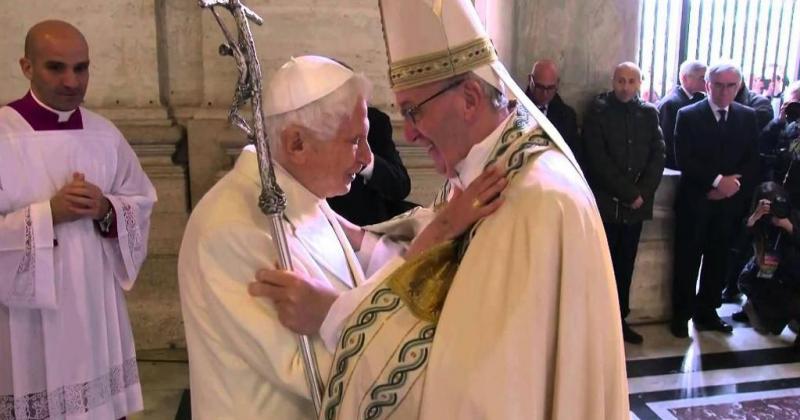Pope Bergoglio’s interview shows an approach in tune with that of his predecessor, an indispensable gaze for understanding the Holy See’s approach from China to Cuba.
In a dialogue with the director of the Echo of Bergamo, Pope Francis said that at global level he was concerned about “the imbalances that are always tied to reckless exploitation: both of people and of nature”. And he significantly added: “yet, the Church’s true task is not to change governments, but to bring the logic of the Gospel into the thinking and actions of those who govern”.
These enlightening words remind us of the Church’s special mission, as She is not and should never be considered a “political agent”, and whose goal of action is never to trigger government or regime changes. This does not mean, of course, keeping quiet in the face of injustice or inviting Christians to live quietly and disengaged. It means, though, never forgetting what the true nature of the Church is and preventing her from being manipulated.
The words of Pope Francis represent the key to understanding the attitude of the Holy See towards, for example, the government of Beijing. The long and difficult negotiation conducted by the closest collaborators of the Pontiff to reach an agreement on the nomination of bishops is not animated by any “political” retrospective, but has an exclusively evangelical purpose, that of fostering the unity of the Church in China through the indispensable bond with the Successor of Peter, a founding element for the Church herself, and thus allowing the Chinese Catholic faithful to live their faith.
This was explained by the Cardinal Secretary of State Pietro Parolin, speaking precisely about the negotiations with Beijing: “I would like to refer once again to the words of Benedict XVI in his Letter to Chinese Catholics. He teaches that the Church’s own mission is not to change the structures or the administration of the State, but to proclaim to people Christ, the Savior of the world, relying on the power of God. The Church in China does not want to take the place of the State, but wants to offer a serene and positive contribution for the good of all. Therefore, the message of the Holy See is a message of good will, with the hope of continuing the dialogue undertaken to contribute to the life of the Catholic Church in China, to the good of the Chinese people and to peace in the world”.
Parolin mentioned Benedict XVI’s approach to dialogue with China. An approach in tune with the words of Francis. In November 2016, Cardinal Jaime Ortega y Alamino, Archbishop Emeritus of Havana, revealed a dialogue he had with Pope Ratzinger in the summer of 2012, therefore a few months before the German Pontiff resigned. There was talk of Cuba and of relations between the Church and the Communist government of the Caribbean island.
“In the last conversation we had, in June or July 2012 - Ortega said - Pope Benedict recalled his visit to Cuba and said: “The meeting with President Raul Castro was very interesting. He is a man who wants to make several changes. We must help him. The Church must aim for dialogue. The Church is not in the world to change governments, but to penetrate the hearts of people with the Gospel. This should always be the way of the Church”. He said so taking stock of the fact that he had been able to visit Cuba, and before him, John Paul II, because we had maintained this dialogical position. He said that there is no other way but this one”. A few months later, during the conclave of 2013, Cardinal Ortega recounted Ratzinger’s words to Bergoglio, who responded by saying: “Pope Benedict’s sentence should be placed on a banner at the entrance of every city in the world”.
